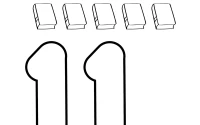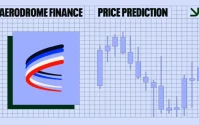J&J's Latest Billion-Dollar Roll of the Dice: Are We Supposed to Be Impressed?
Alright, another Monday, another corporate giant flexing its financial muscle, and another press release so sterile it could double as a surgical instrument. Johnson & Johnson, the behemoth that brought you everything from baby powder to lawsuits, just announced they're dropping a cool $3.05 billion in cash on Halda Therapeutics. Johnson & Johnson to acquire Halda Therapeutics for $3.05 billion. Halda, for those not keeping score at home, is a "clinical-stage biotechnology company." Translation: they ain't got squat on the market yet. Not a single approved drug. But hey, they got a fancy platform called RIPTAC™ and a lead candidate, HLD-0915, aimed at prostate cancer. Color me unimpressed.
The PR machine is already spinning this as a "growth catalyst" and an "acceleration" of HLD-0915's development. J&J execs like Jennifer Taubert and John C. Reed are probably patting themselves on the back, all smiles for the cameras, talking about "unmet medical needs" while the Halda founders are counting their billions, trying to look appropriately humble. The stock market, offcourse, will probably eat it up. But let's be real for a second. This whole thing feels less like a strategic masterstroke and more like J&J bought a lottery ticket – a very, very expensive lottery ticket – in the hopes it'll pay off.
Betting Big on the Next Big Thing (That Isn't Quite There Yet)
So, what's J&J actually buying for three billion bucks? A concept. A platform. A promise. Halda's RIPTAC™ platform is a spin on an idea that's been buzzing in the drug industry for a decade: targeted protein degradation, or PROTACs. Johnson & Johnson acquires Halda Therapeutics for $3 billion, a big win for a buzzy new technology. Yale's Craig Crews cooked up this whole two-handed molecule thing – basically, it's like a tiny cellular bouncer that grabs a disease-causing protein and drags it to the cell's waste disposal unit. Sounds brilliant on paper, right? And tons of startups, like Arvinas, have raised mountains of cash, partnered with pharma giants like Pfizer, all betting on this tech.
Here's the kicker, though: despite all that excitement, all that money, all those brilliant minds... not a single PROTAC drug has actually been approved yet. Not one. It's the biotech equivalent of perpetually being "the next big thing" without ever actually being the thing. J&J's jumping into a pool where everyone's still learning to swim, hoping their particular brand of water wings, the RIPTAC, will finally get someone to the other side. They're telling us HLD-0915 has "impressive preliminary efficacy" and a "strong early safety profile." Yeah, well, so did a lot of drugs in Phase 1/2 trials that never saw the light of day. Are we really supposed to believe that this time, it's different? Or is it just another round of big pharma buying into the hype cycle, hoping to catch lightning in a bottle before anyone else does?
This isn't just a gamble. No, 'gamble' implies some chance of winning—this is a calculated bet on hype, on the potential of a technology that’s yet to deliver. And they ain't even trying to hide the short-term pain. J&J themselves are forecasting a $0.15 dilution to their Adjusted EPS in 2026. That's real money, folks, gone to financing and some non-recurring charge for Halda employee equity awards. Basically, they're paying a premium for the privilege of maybe, possibly, eventually, having a new drug. It’s like buying a fixer-upper mansion for top dollar because the architect might have a genius plan for a new wing, even though the current foundation is still a question mark. You're buying the blueprint, not the finished house.
And what about that "unmet medical need" in prostate cancer, with 1.7 million projected diagnoses by 2030? Look, I'm not saying new treatments aren't needed. Of course they are. But is this the only way? Is throwing billions at unproven tech the most efficient path, or just the flashiest? What about the smaller, less glamorous innovations that might actually make a difference? We never hear about those, do we? This whole deal just reinforces my belief that big pharma is less about revolutionary breakthroughs and more about acquiring potential revenue streams, even if they're still theoretical. Then again, maybe I'm just the cynical one here, watching the shiny new toys get all the attention.
The Real Cost of "Innovation"
J&J's move with Halda Therapeutics stock isn't just about a drug candidate; it's about owning the platform. It's about getting a foot in the door of a promising (yet unproven) technology. They're not just buying HLD-0915, but "several earlier-stage candidates" for breast, lung, and other tumor types. And the platform itself, they say, could extend "beyond oncology." That's the real prize, the hidden gem they're hoping to unearth: a whole new pipeline of drugs, all from this RIPTAC™ magic.
But here's my burning question: if this RIPTAC™ platform is so revolutionary, so full of potential, why hasn't it yielded an approved drug yet, either for Halda or any of its PROTAC cousins? What are the actual hurdles? Is it efficacy? Safety? Or just the sheer complexity of making these molecular bouncers work consistently in the human body without causing a riot? The details on why these previous PROTAC efforts haven't crossed the finish line are often scarce, but the impact is clear: a lot of money has been spent with no approved product to show for it. J&J's betting that their money, their resources, their corporate heft, will somehow be the secret sauce that unlocks this decade-long puzzle. It's a bold move, or a foolish one. Only time, and a lot more cash, will tell.
Another Billion-Dollar Bet on 'What If'?
Look, J&J's got the cash, and they're gonna spend it. That's what corporations do. They see a glimmer of potential, a shiny new tech, and they pounce. But for us regular folks, the ones who actually recieve these drugs (if they ever make it to market), it’s just another reminder that the pharmaceutical industry operates on a completely different plane. It’s not about guaranteed solutions; it’s about high-stakes speculation dressed up as innovation. And until one of these "next big things" actually becomes a big thing, I'm gonna remain skeptical. This isn't groundbreaking; it's just business as usual, with an extra zero on the price tag.









